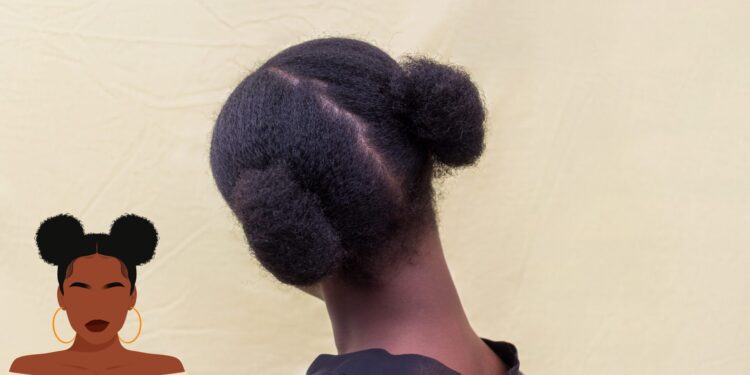Understanding Hair Growth
Hair growth can be influenced by a variety of factors, including genetics, health, and hair care practices. On average, hair grows about half an inch per month, or roughly six inches per year. However, for many women, particularly those of African descent, achieving long, healthy hair can seem challenging due to the unique texture and care needs of their hair.
Common Reasons for Stunted Hair Growth
- Genetics: Your hair growth rate, length, and texture are significantly influenced by your genes. If long hair is uncommon in your family, genetics might be a contributing factor.
- Hair Care Practices: Frequent use of heat styling tools, harsh chemicals, and tight hairstyles can cause breakage and damage, leading to shorter hair over time.
- Diet and Nutrition: A lack of essential nutrients such as vitamins A, C, D, and E, zinc, iron, and omega-3 fatty acids can affect hair health and growth.
- Scalp Health: A healthy scalp is essential for hair growth. Conditions like dandruff, psoriasis, or fungal infections can impede hair growth.
- Protective Styling: While protective styles like braids, weaves, and wigs can help protect hair, improper installation, and maintenance can cause damage and breakage.
- Moisture and Hydration: African hair tends to be naturally dry, and a lack of moisture can lead to brittle hair that breaks easily.
Steps to Promote Hair Growth
1. Adopt Healthy Hair Care Practices
- Gentle Handling: Avoid rough handling of your hair. Use wide-tooth combs and detangle hair gently to minimize breakage.
- Reduce Heat: Limit the use of heat styling tools. When you do use them, apply a heat protectant to minimize damage.
- Chemical Treatments: Minimize the use of chemical treatments like relaxers and dyes, which can weaken hair and cause breakage.
2. Maintain a Balanced Diet
- Protein: Hair is made of keratin, a type of protein. Ensure your diet includes adequate protein from sources like fish, eggs, beans, and nuts.
- Vitamins and Minerals: Incorporate a variety of fruits and vegetables into your diet to provide essential vitamins and minerals for hair health. Consider supplements if needed, but consult a healthcare provider first.
3. Scalp Care
- Cleanliness: Keep your scalp clean to prevent buildup and infections. Use a gentle shampoo and avoid overwashing.
- Massage: Regular scalp massages can stimulate blood flow to the hair follicles, promoting growth. Use natural oils like coconut, olive, or castor oil to nourish your scalp.
4. Protective Styling
- Choose Wisely: Opt for protective styles that do not put excessive tension on your hair and scalp.
- Maintenance: Ensure that protective styles are installed and maintained properly. Avoid leaving them in for too long, and give your hair breaks between styles.
5. Hydration and Moisture
- Moisturize Regularly: Use leave-in conditioners, oils, and creams to keep your hair moisturized. The LOC (Liquid, Oil, Cream) method is effective for sealing in moisture.
- Deep Conditioning: Incorporate deep conditioning treatments into your routine to keep your hair soft and manageable.
Natural Remedies and Products
- Shea Butter: Rich in vitamins and fatty acids, shea butter can help moisturize and strengthen hair.
- Aloe Vera: Known for its soothing properties, aloe vera can help condition the scalp and promote hair growth.
- Essential Oils: Oils like rosemary, lavender, and peppermint can stimulate hair growth and improve scalp health.
Achieving long, healthy hair is a journey that requires patience, consistency, and the right approach tailored to your unique hair type. By understanding the factors that influence hair growth and adopting healthy hair care practices, you can foster an environment that promotes hair length and health. Remember, it’s not just about the products you use but also how you treat your hair and scalp daily. Embrace your natural beauty and take pride in your hair care journey.


















































